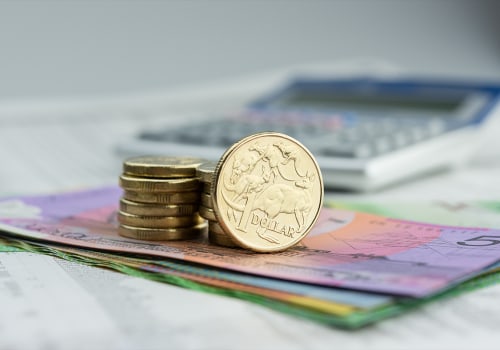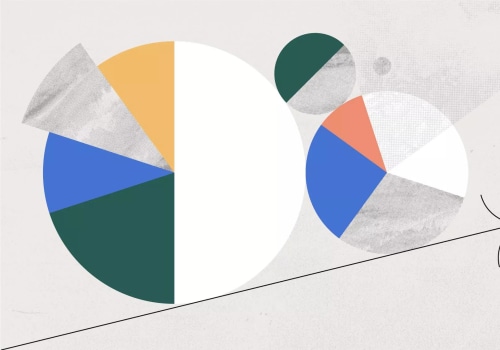Are you looking for the best budgeting tools and apps to help you manage your finances? You're in the right place. In this comprehensive overview, we'll provide you with all the information you need to make an informed decision about which budgeting tool or app is right for you. Whether you're a beginner or an experienced budgeter, having the right budgeting tools and apps can make a huge difference in your financial life. The right budgeting tool or app can help you stay organized, save money, and make smarter financial decisions. In this guide, we'll explain what budgeting tools and apps are, how they work, and give you tips on how to choose the right one for your needs. If you're ready to take control of your finances and start budgeting today, then let's get started!Budgeting tools and apps offer an effective way to manage your finances.
They provide users with the ability to track spending, develop a budget plan, and stay on top of their finances. There are many different types of budgeting tools and apps available, each with its own features and benefits. In this article, we’ll discuss the different types of budgeting tools and apps available, how they can help you keep track of your finances, and their pros and cons. Online budget calculators are one of the most popular budgeting tools. These calculators allow users to quickly input income and expenses to get an accurate picture of their financial situation.
They also provide detailed reports that can help users identify areas where they can save money and make better financial decisions. Some online budget calculators also have features that allow users to set spending limits and track their progress.Budget tracking apps are another type of budgeting tool. These apps allow users to easily create a budget plan, track their expenses, and receive notifications when they reach their financial goals. Budget tracking apps usually offer features such as goal setting, spending limits, and budget alerts. They also provide detailed reports that can help users identify areas where they can save money and make better financial decisions. Some online budget calculators also have features that allow users to set spending limits and track their progress. Budget tracking apps are another type of budgeting tool. These apps allow users to easily create a budget plan, track their expenses, and receive notifications when they reach their financial goals. Budget tracking apps usually offer features such as goal setting, spending limits, and budget alerts.
They can also provide users with real-time updates on their progress. Financial planning software is a comprehensive budgeting tool that provides users with detailed reports and analysis on their financial situation. This type of software can be used to create a budget plan, track expenses, manage investments, and more. It can also provide users with insights into how their decisions will affect their future finances. Expense tracking software is a great tool for tracking expenses on a regular basis. This type of software allows users to easily categorize expenses and keep track of where their money is going.
It also provides users with detailed reports on their spending habits. Investment tracking software is a great tool for investors who want to monitor their investments. This type of software allows users to monitor the performance of their investments, track trends in the stock market, and get advice on how to make better investment decisions. Using budgeting tools and apps can have many advantages for users. They provide convenience, accuracy, transparency, and access to detailed reports that can help users make better financial decisions. Budgeting tools can also help users save money by providing insights into where they can cut back or save more.
Additionally, these tools can help users stay on track with their financial goals and reach their financial goals. However, there are some potential drawbacks to using budgeting tools and apps. These include potential privacy concerns or security risks associated with using the tools. Additionally, some budgeting tools may not be suitable for all types of budgets or financial goals. Overall, budgeting tools and apps offer an effective way to manage finances and reach financial goals. Popular budgeting tools include online budget calculators, budget tracking apps, financial planning software, expense tracking software, investment tracking software, and more.
These tools provide convenience, accuracy, transparency, and access to detailed reports that can help users make better financial decisions. However, users should be aware of potential privacy concerns or security risks associated with using these tools.
Potential Drawbacks
When it comes to budgeting tools and apps, there are some potential drawbacks to consider. For instance, there may be privacy or security concerns associated with the use of such tools. It's important to understand how these tools handle user data and if they take appropriate measures to protect it.Additionally, some budgeting tools and apps may require users to provide sensitive information such as bank account numbers or other financial information, which could increase the risk of identity theft or fraud. Another potential concern is the accuracy of the data that budgeting tools and apps provide. It's important to check that the data is up-to-date and accurate before making any decisions based on it. Furthermore, some budgeting tools and apps may not include all of the features needed to effectively manage finances, so users should be sure to read reviews and do their research before investing in a particular tool.
Advantages of Using Budgeting Tools and Apps
Budgeting tools and apps offer a convenient and effective way to manage your finances. In addition, there are several advantages to using budgeting tools and apps over traditional methods.Convenience:
Budgeting tools and apps allow users to access their financial information from any device, anywhere in the world.This makes it easier to check spending, monitor progress, and adjust plans as needed. Additionally, many budgeting tools and apps offer additional features such as bill reminders, monthly budget summaries, and the ability to import bank statements.
Accuracy:
Budgeting tools and apps provide accurate information about spending habits and can help identify areas where money is being wasted. This allows users to make more informed decisions about their finances.Transparency:
Budgeting tools and apps offer an easy-to-understand view of your financial situation. This transparency can help identify problems early on and allow you to take action quickly.Detailed Reports:
Many budgeting tools and apps provide detailed reports that can be used to analyze spending trends over time.This can help identify areas where money is being wasted and can help users make better decisions about their finances.
Types of Budgeting Tools and Apps
Budgeting tools and apps come in a variety of shapes and sizes, all designed to help users manage their finances. Some tools are designed to help you track your spending, while others are better suited for creating a budget plan. Below, we'll discuss the different types of budgeting tools and apps and their features, benefits, how to use them, and any potential drawbacks.Budget Tracking Apps
Budget tracking apps are designed to help users monitor their spending and create a budget plan. These apps often provide users with insights into how much they are spending and on what.They can also be used to set budget goals and track progress towards those goals.
Expense Management Apps
Expense management apps are designed to help users track their expenses and manage their finances more effectively. These apps provide users with detailed insights into where their money is going, as well as the ability to set spending limits and monitor their progress. Additionally, these apps often offer features such as automatic expense categorization and notifications when spending limits are exceeded.Financial Planning Apps
Financial planning apps are designed to help users plan for the future. These apps provide users with the ability to set long-term financial goals, track progress towards those goals, and analyze their current financial situation.Additionally, many of these apps offer personalized advice based on users’ individual financial situations.
Savings Apps
Savings apps are designed to help users save money by setting up automatic transfers from their checking accounts to a savings account. These apps also often offer features such as goal-setting capabilities, budgeting tools, and notifications when savings goals are met. Additionally, many of these apps provide users with access to financial education resources.Pros and Cons of Budgeting Tools and Apps
Budgeting tools and apps provide users with an effective way to manage their finances. However, there are some potential drawbacks that should be considered.One potential drawback is that some of these tools may require users to give up a certain amount of control over their finances. Additionally, some of these tools may not be as reliable or secure as other budgeting methods. Overall, budgeting tools and apps offer an effective way for users to stay on top of their finances. They provide users with detailed insights into their spending habits, the ability to set budget goals, and access to financial education resources. However, it is important for users to consider the potential drawbacks before using a budgeting tool or app. In conclusion, budgeting tools and apps offer an effective way to manage your finances.
They can help users track spending, create a budget plan, and stay on top of their finances. Different types of budgeting tools and apps are available, each with its own advantages and drawbacks. When it comes to managing your finances, it’s important to explore the different options available and find the budgeting tool or app that works best for you. By taking the time to understand the different budgeting tools and apps available, you can make sure you're using the one that offers the most benefits for your particular financial needs. With the help of these tools, you can better manage your money and reach your financial goals.







